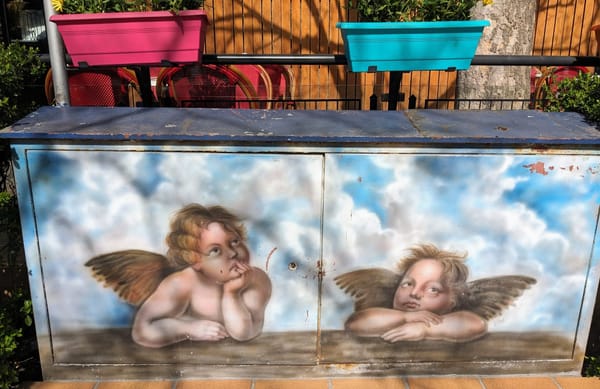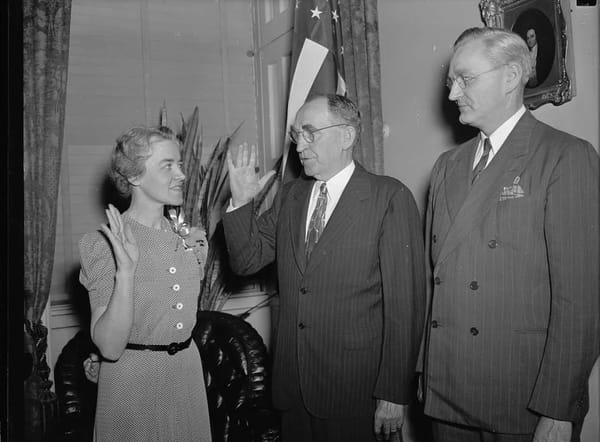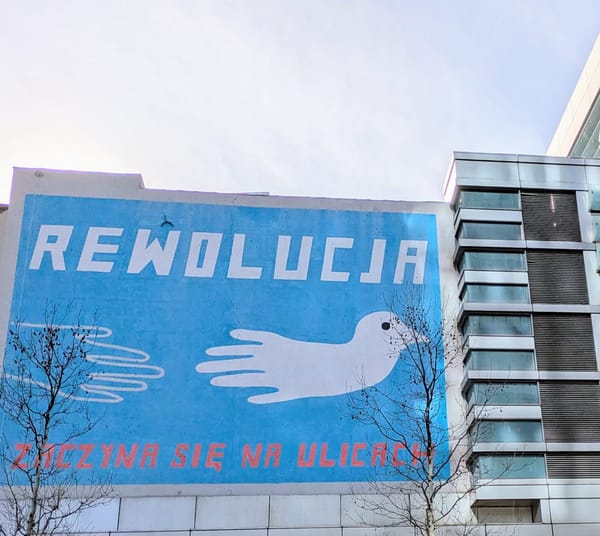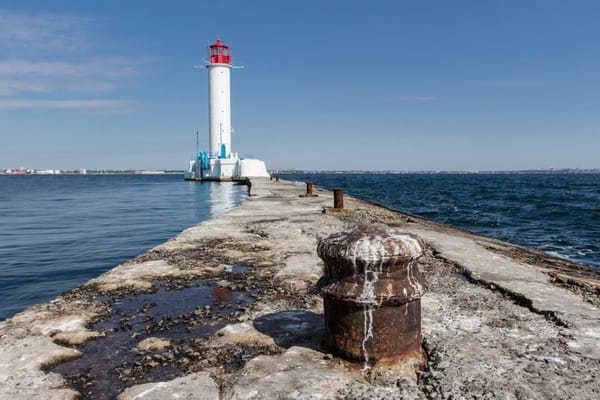Quality Journalism Includes Stories of 'Resilience and Action'
Lessons from a Ukrainian journalist on the eve of the US elections
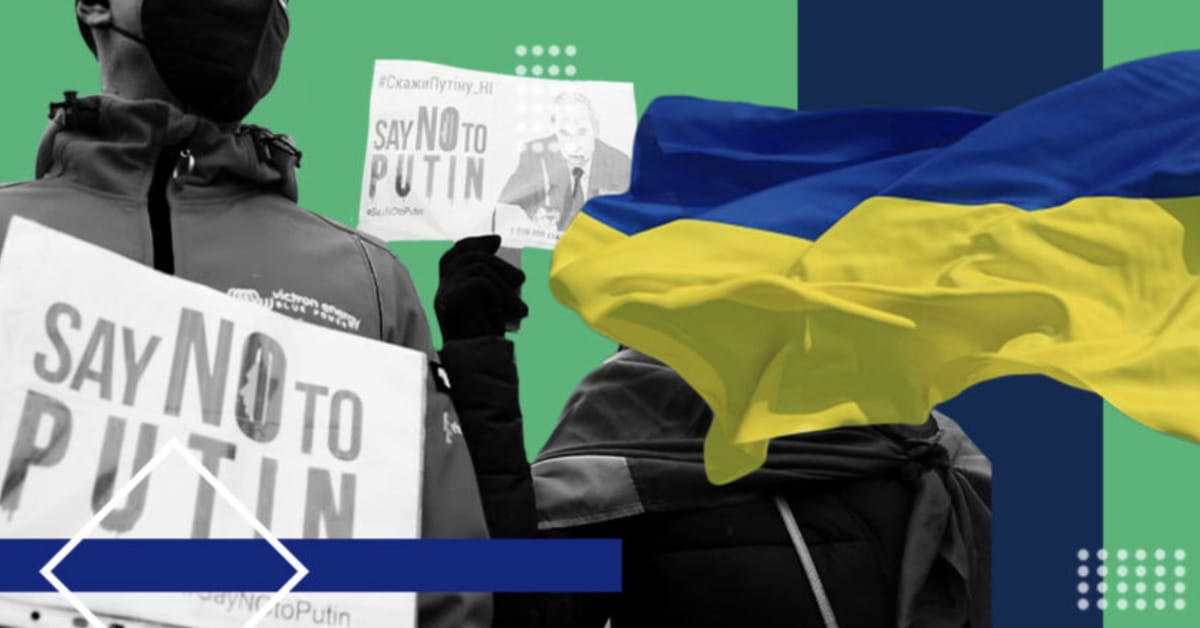
It is the eve of the US elections, and the air in my part of the country is a blend of anxiety, hope, confusion, anger, encouragement, adrenaline, community. . . did I mention anxiety? There is a lot at stake and a lot on the ballot. You know what you might not have noticed on the ballot if you voted early? Ukraine. And yet, I don’t think there is any doubt that Ukraine is on the ballot here (as it was in Bulgaria and Sakartvelo/Georgia last week, and Moldova before that). Certainly, the Ukrainians I know are paying close attention to what we Americans are up to this week.

Which brings me to a news team I have been turning to a lot for the last month. Rubryka (Rubric) is a Kiev-based news org that launched in 2018 that highlights the work of socially active Ukrainians. It is a model for Solutions Journalism, and highlights tangible solutions instead of just the problems. Their motto: “we put things on shelves.” Shelves full of ideas that bring readers like me a more complete picture of the big challenges & of efforts to face those challenges.
Notes from New Europe is a reader-supported publication. To receive new posts and support my work, consider becoming a free or paid subscriber.
A month back I met Anastasia Rudenko, one of the founders of Rubryka at the European Solutions Journalism Summit. Organized by Transitions Media, the summit brought journalists from across Europe and a few Americans (including SoJo founder Tina Rosenberg, and the amazing facilitator Samantha McCann)to Prague to learn and work together on best practices in collaboration, cross border journalism, and solutions and constructive journalism. And throughout the workshops and sessions, I kept thinking “no excuses.” Those of us working in places like the US, the UK, Germany, Canada, and other more robust media markets have no excuses. If journalists from Ukraine and Belarus, for example, are buckling down and writing about solutions and pragmatic possibilities in the face of seemingly impossible challenges, then we can surely give our readers and listeners and viewers journalism that helps them engage with possibilities and not just feed off their anxiety-driven clicks.
Anastasia launched Rubryka in 2018 with two colleagues who worked at newspapers in Ukraine. She was pursuing her Masters at the time when she felt called to launch the independent news organization. Anastasia was in Kiev when Russia occupied her home city in the east of Ukraine, and the early ideas for Rubryka came to her as she used social media to keep in touch with friends and family back home and report out what was happening.
I’ve been learning a great deal from Anastasia and the work she has been doing, so I asked her to share some of what she has learned with all of us.
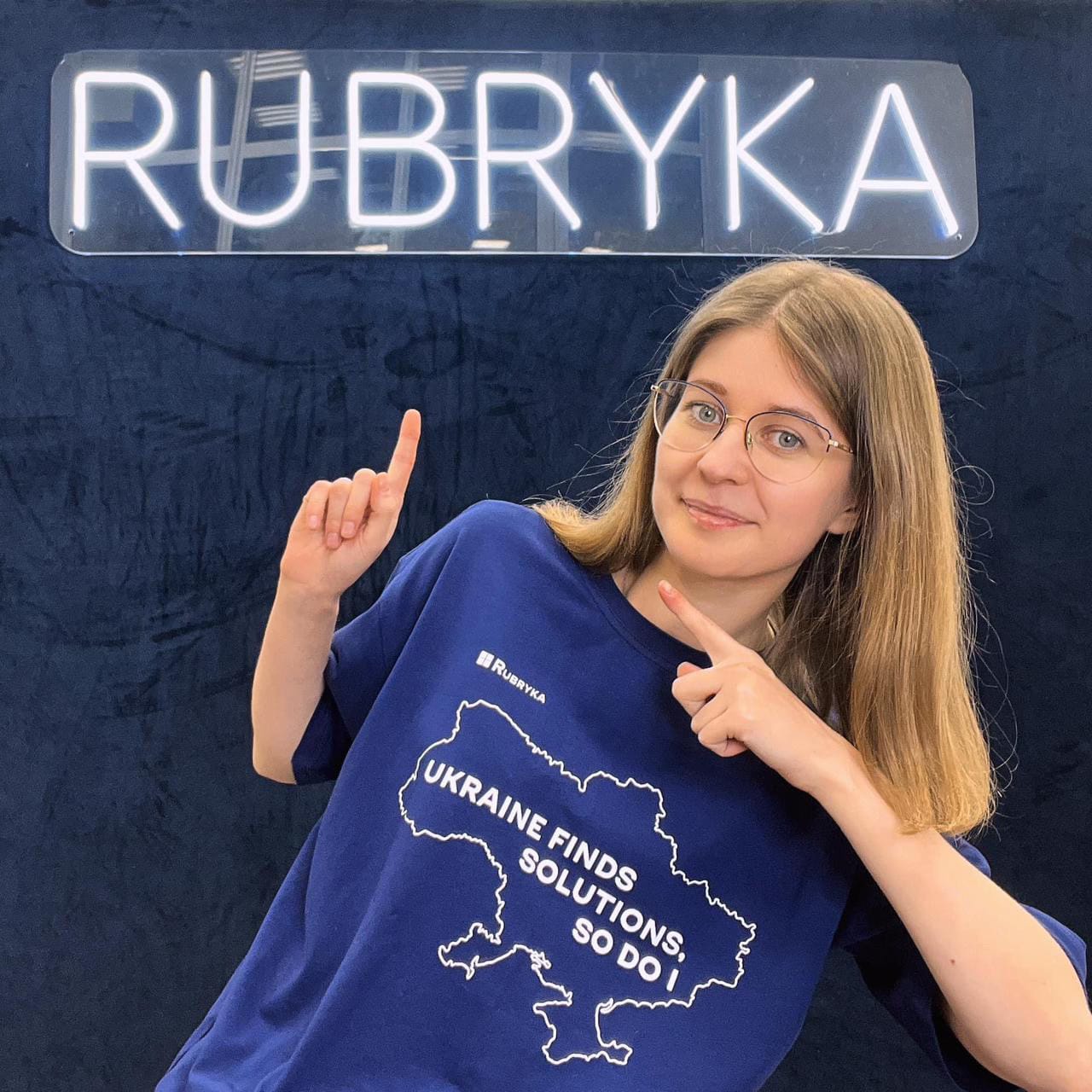
GG: How did you manage to launch a new company, given the challenges for journalism as a business these days and, more importantly, Russia’s full-scale invasion?
Rudenko: Starting Rubryka was driven by belief and passion. We sought opportunities to learn and grow, beginning only with scholarships for materials and securing our first small grants. In the early days, much of our work was done voluntarily; I myself balanced several jobs just to make a living. Yet, with steady and gradual steps, we started to build our team and refine our processes. It wasn’t an overnight success; it was a journey of small but meaningful progress, driven by a deep conviction—a sense that our mission to highlight solutions was worth every effort.
GG: How did you decide to become a journalist?
Rudenko: I am originally from the East of Ukraine, from the Donetsk region, specifically the city of Sloviansk. It was the first town occupied by the Russians in 2014, right after the Revolution of Dignity in Ukraine, when the war began. My family knows what occupation feels like — the fear, the intimidation, and the fighting in the streets. At that time, I was already a student in Kyiv, but despite the circumstances, I managed to stay in touch with my family. I created a Twitter account to share firsthand information about what was happening in the city under occupation. That account quickly grew to over 50,000 followers and became a valuable source of information for many Ukrainian and even international media outlets. We didn’t do interviews or personal communications to maintain anonymity and safety, but it was then that I realized the power of journalism. It can truly provide life-saving information and help people.
Later, my sister and I became journalists at different publications, and in 2018, we co-founded Rubryka.
Thanks for reading Notes from New Europe! This post is public so feel free to share it.
GG: When I bring up the practices of constructive journalism and solutions journalism to peers in the field, especially in the US, I often run into dismissiveness. I’d categorize their response in two ways. 1) they think of solutions and constructive approaches (falsely) as “good news” journalism. Earnest and naive. 2) They say they don’t “have time” for such an approach given how “serious” the problems the world is facing are.
Rudenko: The same prejudices exist among some of our Ukrainian colleagues. But we work to change their perceptions through Rubryka’s practice and impact, which we track and measure.
First, our content demonstrates that solutions journalism is not about “positive stories.” We are very problem-focused. Our reporting tackles real issues head-on, highlighting the complexity of these problems while showing potential paths forward. Second, when people argue they don’t have time for such an approach because of the seriousness of global problems, we emphasize that we address those same critical challenges — just from the angle of searching for solutions. Even if the solutions are imperfect or partial, these stories deserve to be told.
We also encounter another “accusation” — that we might be crossing into activism. This year, we even launched the SolutionsHub format, a space for discussing the issues we cover, bringing together our story subjects, experts, government representatives, and engaged citizens. Some question whether journalists should facilitate impact so directly. But I believe that when other institutions fail to act, journalists sometimes have to step in. Creating participatory formats is essential for us because it’s about engaging the community, building trust, and increasing the effectiveness of our work.
GG: Rubryka is practicing Solutions Journalism while you, your country, your family, your friends, are under attack. Why are there no excuses? Why SoJo?
Rudenko: Yes, there are literal attacks every day — by drones, by missiles, by attack on the land. But there is a war against first of all our spirit, our morale. And we cannot afford to give up on seeking solutions. Practicing Solutions Journalism is an act of resistance. It means not succumbing to despair, but instead, contributing to the common victory by empowering people. When our stories help others persevere, when they give hope or offer ways to overcome challenges, we’re making a meaningful impact. That’s why, even in times of crisis, we have no excuses — only a responsibility to keep up.
GG: What are your thoughts on how those of us far west of Ukraine are reporting on the war? Do you have any guidance on how we might frame our reporting better?
Rudenko: One of my personal frustrations is that Ukrainians are often portrayed solely as victims. It’s true — we didn’t choose this war, and the suffering and destruction are real. But at the same time, Ukrainians are fighters. We’re now in the third year of this full-scale invasion, and we’re still holding on, achieving the impossible every day.
If I could offer any guidance for reporting from the West, it would be to balance narratives of suffering with stories of resilience and action. Highlight the specific individuals who are driving change, and emphasize the valuable expertise Ukrainians have gained through these harrowing experiences — knowledge that the world can learn from. Also, communicate the practical benefits of supporting Ukraine now. It’s a strategic investment in global stability and peace, far more advantageous than facing the consequences of a defeat.
GG: This has been an historic year of elections, and while the global response to Russia's war on Ukraine is not specifically on the ballot, in a way it is an important issue in many many elections. What is the reaction for you and your friends and colleagues to the many elections near and far this year? What do you hope people in the US consider as they go to the polls?
Rudenko: We’re watching these elections with great anxiety, to be honest. Unfortunately, places like Georgia have shown that all the progress made on reforms and European integration can be completely undone. The recent elections there only strengthened the pro-Russian government, and it’s disheartening to see how a country that once overthrew a post-communist, pro-Russian regime during the Rose Revolution could devolve into a haven for oligarchy, manipulated from Moscow. In Georgia, elections may still be held, but they are often marred by fraud, and any democratic attempts to push back against the “dream of Putin” are suppressed, despite the painful memory of the 2008 war.
This reality is a sobering reminder that there is no true “point of no return.” Civil society must remain vigilant to avoid a “Georgian scenario.” It’s crucial for society to always be ready to resist Kremlin influence. For Ukrainians, this isn’t new; we’ve been battling this for years.
The same goes for Bulgaria and Moldova. Unfortunately, the influence of “Putin’s friends” remains strong, posing a serious threat to Ukraine. I’m convinced that Russia’s disinformation continues to manipulate electoral sentiments in these countries, spreading fear and anti-European rhetoric.
Right now, all eyes are on the upcoming elections in the United States. Of course, I want to urge people: please vote with Ukrainians in mind. Many believe these elections could be a “turning point in history.” But I’d say that the real work begins after the votes are counted. Elections will end, but crucial decisions are made afterward. It will be essential to communicate that what’s at stake is the real threat of defeat and occupation of a European country — a threat that won’t stop at Ukraine. Supporting Ukraine now is about sending a clear message to aggressors before it’s too late.
Thank you for the read. I expect you’ll be hearing more and more from Anastasia and her fearless colleagues as their work is simply extraordinary and necessary.
Readers in or near Sofia, I’ll be sharing an announcement soon of our next public conversation at Mahala. It will be on 5 December and we will focus on nostalgia and narrative in the US and Bulgarian campaigns. As always, get in touch with questions and ideas.
